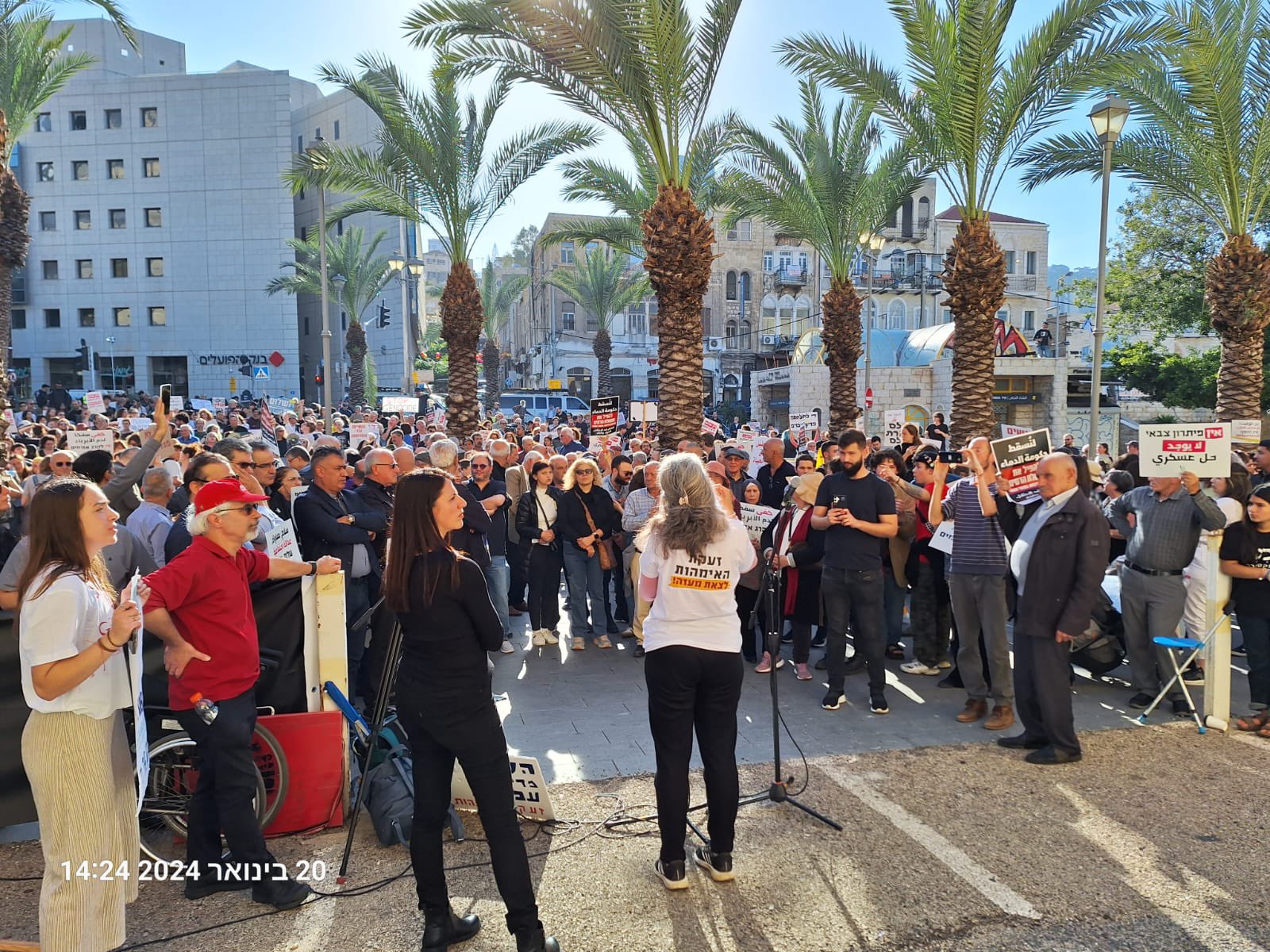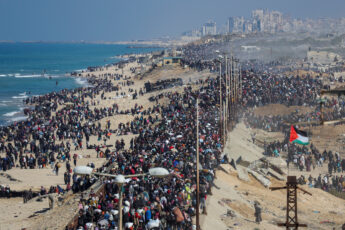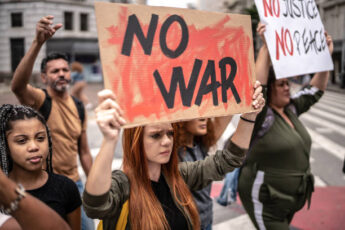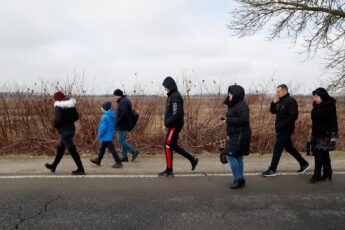
BY NISREEN MORKOS (Woman Democratic Movement, Israel)
We mark occasions like Women’s Day and March 8 to remind ourselves that we inhabit a world where wars persist. Women’s Day serves as a platform for us to reject the ideology of militarism and warfare. We refuse to settle conflicts through violence, a method that results in countless casualties.
I find myself unable to solely defend women in the dreadful war ravaging the Gaza Strip, sparing no one. Thousands of women have fallen as martyrs, while those who survive endure the loss of their children, husbands, brothers, and homeland. They carry the burden of separation, tragedy, and the anguish of witnessing their hungry children in makeshift tents.
On March 8, International Women’s Day, we are confronted with harrowing realities and testimonies of war crimes occurring in the Gaza Strip. According to the United Nations website, “One million women and girls were forcibly displaced in Gaza, with half of them now residing in Rafah.”( UNFP.( They endure unbearable suffering, facing disease and the looming threat of famine. Every Day, we wake up to relentless news updates, with reports of dozens martyred and wounded. We witness death firsthand, feeling a sense of helplessness as we watch, lament, and protest, yet often unable to extend a helping hand to those in need.
My concern is that we may become desensitized to the scenes of carnage, bloodshed, and the corpses littering the streets of Gaza and its refugee camps. The cemeteries are filled with the victims of this atrocious war. We see the dust-covered faces of those fortunate enough to survive missile attacks, emerging from the rubble shaken but alive. Children roam among the corpses as if these horrific sights have become their daily norm or even a macabre “game.” What future awaits them if they continue to endure such horrors? What psychological scars will they carry for years to come?
We strive to carry on with our lives amidst this turmoil, but our existence is overshadowed by grief, pain, and sorrow for our people. Even our attempts at peaceful demonstrations are thwarted, with incitement and intimidation persisting.
At the onset of the conflict, some of us hoped that the so-called “enlightened and human rights” nations of the world would intervene to halt the bloodshed in Gaza. However, their self-interest and the lucrative arms trade prevailed over humanitarian concerns.
The prevailing sentiment within Israeli society seems to support the war, leaving me bewildered by mothers who send their sons and daughters off to battle without questioning the consequences unfolding in Gaza. There’s a pervasive atmosphere of indifference toward the suffering of Gazan war victims, exacerbating feelings of despair and frustration. This calls for a concerted effort to break through the wall of apathy and ignorance, which only fuels racism and bolsters support for the war machine.
As activists in the women’s movement, we recognize that relying solely on external intervention is futile. We must also mobilize pressure from within, fostering alliances with like-minded Jewish groups advocating for peace. Such partnerships are challenging amid heightened emotions, but they’re essential in our shared pursuit of ending the violence.
We understand that war breeds increased oppression, particularly against marginalized groups like women. The proliferation of weapons by figures like Ben Gvir poses a threat not only to Arab citizens but to all women, instilling fear and inhibiting them from reporting violence. Therefore, our demands extend beyond a mere ceasefire; we call for an end to oppression, starvation, displacement, sexual violence, and racism.
To amplify our impact, we must unite as feminist activists across borders, joining the broader peace movements resisting war. Our struggle isn’t solely the burden of those directly affected by conflict; it’s a global responsibility to oppose violence unequivocally and advocate for peaceful resolutions.
On this Women’s Day, let’s raise our voices in a resounding call for women’s empowerment and peace. Let’s declare boldly that there is a powerful alternative to conflict, one that hinges on the strength, resilience, and unity of women everywhere.





